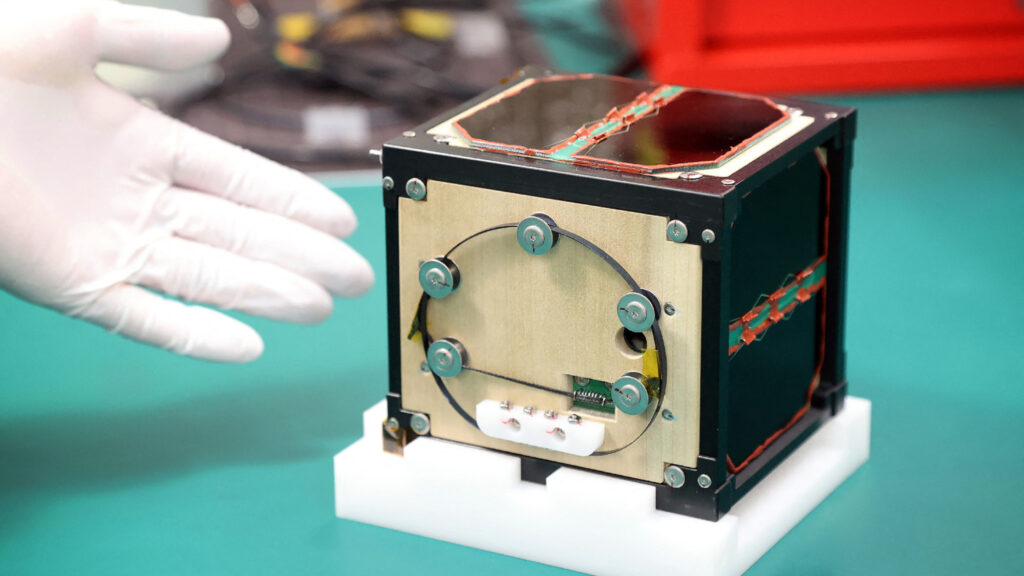
LignoSat, the world’s first wooden satellite developed by Kyoto University and Sumitomo Forestry, is displayed during a press conference at Kyoto University on May 28, 2024.
(Image credit: STR/JIJI PRESS/AFP via Getty Images)
The first-ever wooden satellite, a small Japanese cubesat called LignoSat, reached the International Space Station (ISS) on November 5. It arrived onboard a SpaceX Dragon cargo capsule and represents a unique approach to spaceflight that could shape the future of satellite design.
LignoSat, measuring just 10 centimeters (4 inches) per side, is crafted from magnolia wood rather than the standard aluminum used in most satellites. Unlike aluminum, which can create pollutants when satellites burn up in Earth’s atmosphere, wood might offer an eco-friendly alternative. Aluminum oxide particles generated during atmospheric re-entry can alter Earth’s thermal balance and harm the ozone layer. This has become a growing concern as satellite constellations like SpaceX’s Starlink continue to expand, with thousands of active satellites in orbit.
Former astronaut and Kyoto University professor Takao Doi, who helped develop LignoSat, believes wooden satellites could one day replace metal-based models. “If LignoSat proves successful, we hope to propose the technology to companies like SpaceX,” Doi told Reuters.
LignoSat is a collaboration between Kyoto University and Sumitomo Forestry, a Tokyo-based logging company. Within the next month, it will be released into orbit from the ISS’ Kibo module. Over a six-month period, the satellite’s sensors will measure temperature and strain, capturing data on the effects of space’s vacuum, atomic oxygen, and radiation on the wooden structure. Student researchers will closely monitor these readings to assess the wood’s durability and stability in space.
If successful, the implications of wood-based satellites could extend beyond Earth’s orbit. Kenji Kariya from Sumitomo Forestry’s Tsukuba Research Institute pointed out that, despite its rustic origins, wood could be a modern, sustainable choice as humanity pursues further exploration of the Moon, Mars, and beyond. “Taking wood into space might even inspire growth within the timber industry,” he said.
Checkout Amateur Radio on the International Space Station (ARISS)




Leave a Reply